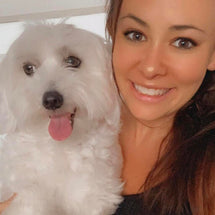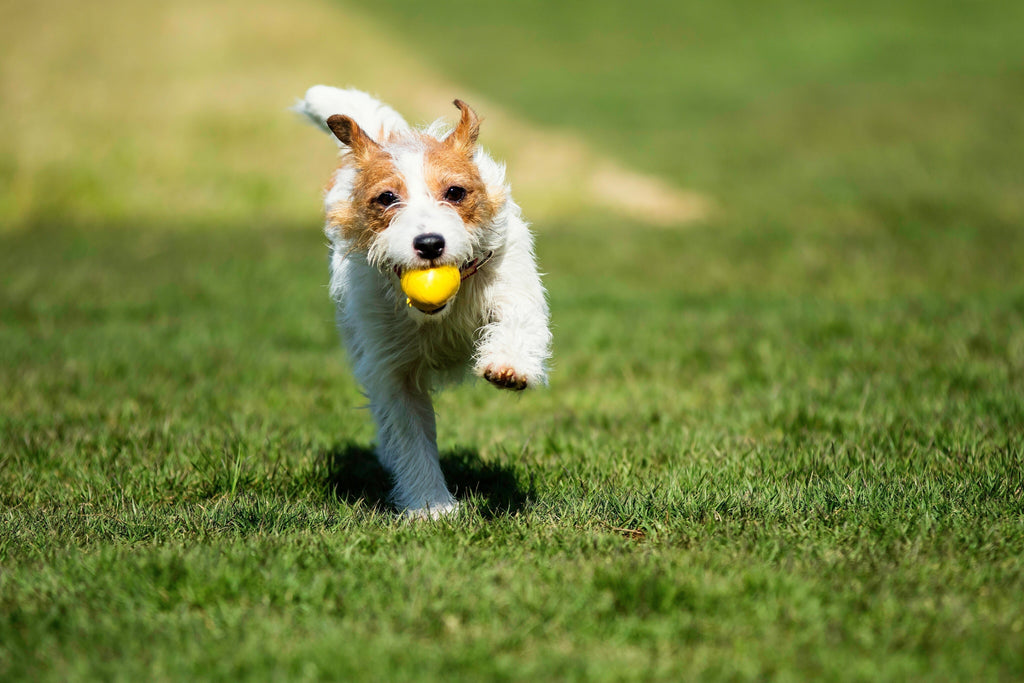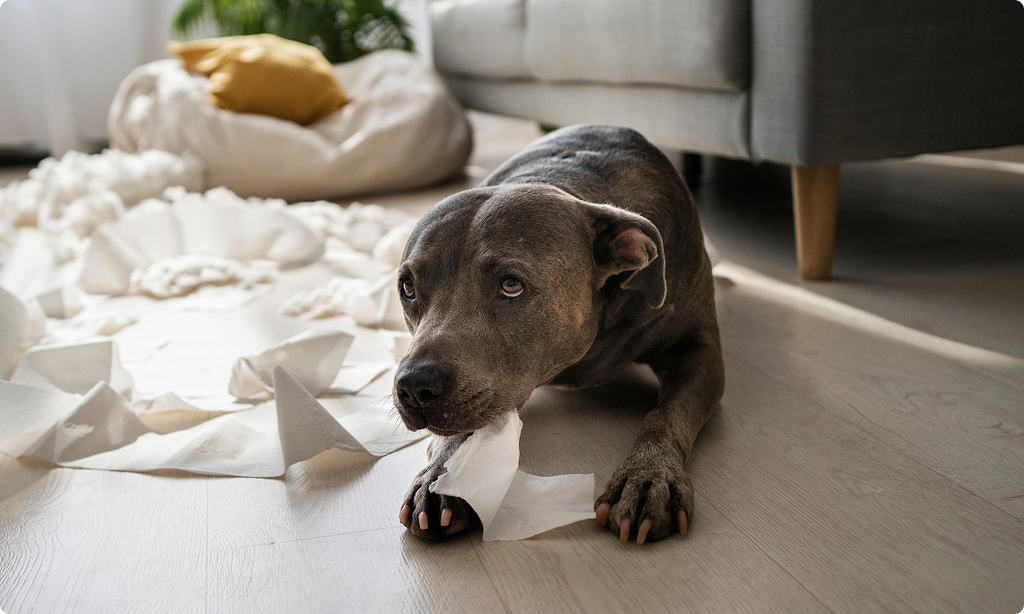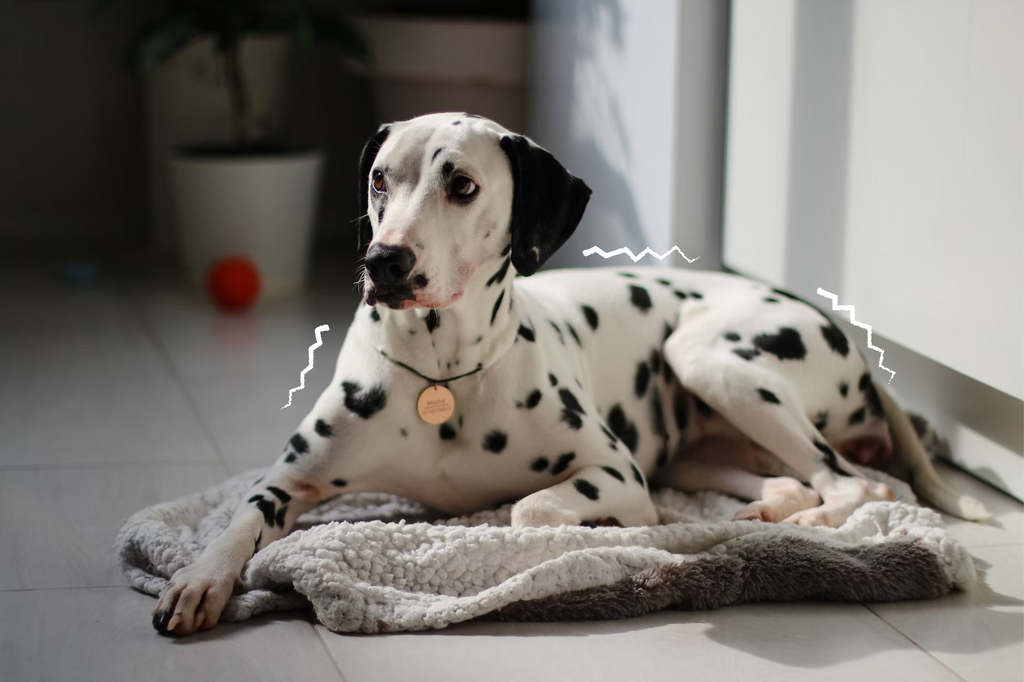How to Keep Your Dog Warm in Winter: 10 Winter Tips for Dog Pawrents

As winter settles in with its chilly temperatures and shorter days, it’s essential to ensure that your furry friend stays warm and comfortable. While some dogs are built for the cold, many breeds are not, and even the hardiest canines can benefit from a little extra care during the winter months. Here are some tips on how to keep your dog warm and happy this winter, including how to keep them active, things to watch out for, and the best ways to spend quality time together.
1. Keeping Your Dog Warm
- Warm Clothing: Dogs with short fur or those prone to the cold may need an extra layer. Dog sweaters, jackets, and even booties can help maintain body heat and protect against the elements.
- Cosy Bedding: Ensure your dog has a warm place to sleep, away from drafts. Heated pet beds or adding extra blankets can provide additional warmth.
-
Indoor Temperature: Keep your home at a comfortable temperature. If it’s too cold for you, it’s likely too cold for your dog as well.
2. Keeping Your Dog Dry
After being outside, dry your dog thoroughly with a towel, especially their paws and belly, to prevent chill and reduce the risk of skin irritation.

3. Skin Irritation
During the winter months, dogs are at an increased risk of skin irritation due to various environmental factors and changes in routine.
Cold, dry air can strip the skin of its natural oils, leading to dryness, itching, and irritation. Additionally, indoor heating systems further contribute to dry air, exacerbating skin issues.
Dogs may also be exposed to allergens such as mould, dust mites, and indoor pollutants, which can irritate their skin.
Reduced outdoor activity during winter may lead to boredom and stress, resulting in excessive licking, scratching, and self-trauma.
To reduce the risk of skin irritation:
- Maintain a regular grooming routine
- Bath your dog every 4-6 Weeks with a dog specific moisturising shampoo
- Brush at least 2-3 times a week to remove dead hair and distribute natural oils Trim long hair to prevent matting and moisture build-up.
Providing a balanced diet rich in omega-3 and omega-6 fatty acids, antioxidants and free from inflammatory ingredients like grains can support skin health from the inside out. Additionally, ensuring proper hydration, using humidifiers to add moisture to the air, and providing mental and physical stimulation through interactive play can help alleviate dry skin and reduce the risk of irritation.
4. Keeping Them Active
Keeping your dog active during winter is crucial for their health and happiness, both physically and mentally.
- Indoor Play: When it’s too cold to go outside, engage in indoor games like fetch or tug-of-war. Puzzle toys and treat-dispensing toys can also provide mental stimulation and keep them entertained.
- Short Walks: When venturing outside, opt for shorter, more frequent walks. Make sure to protect their paws from the cold and salt with booties or paw wax.
- Doggy Daycare: Consider taking your dog to a doggy daycare where they can socialise and play indoors with other dogs.
- Training Sessions: Use the winter months to teach your dog new tricks or commands. This keeps their mind active and strengthens your bond.
5. Things to Be Careful Of
Winter comes with its own set of hazards for dogs. Here’s what to watch out for:
- Frostbite and Hypothermia: Keep an eye on your dog’s ears, paws, and tail, as these are the most susceptible to frostbite. Signs of hypothermia include shivering, lethargy, and weakness. If you notice these signs, bring your dog inside immediately and consult a vet.
-
Rat Bait Poisoning: If you have a pet, you should never use rat bait! You should also check with your neighbours if they use rat bait so that you can be prepared and let your Vet know if there was to be an emergency.
During winter, the risk of accidental rat bait poisoning for dogs heightens as rodents seek shelter indoors, potentially bringing bait onto residential properties, even if it's not used directly. Additionally, dogs may ingest poisoned rodents, leading to secondary poisoning.
To safeguard pets, vigilant supervision during outdoor activities, sealing entry points for rodents, and promoting communication with neighbours about pet-safe alternatives are crucial. - Antifreeze Poisoning: Antifreeze can be lethal for dogs. Ensure your dog avoids driveways and garages where they might encounter this dangerous substance.
- Ice and Snow: If you live in southern parts of Australia, and experience snow or ice, you will need to be extra careful when walking your dog. Ice can be very slippery, which can lead to slips and falls.
- Overheating: While it's essential to protect pets from the cold during winter, monitoring them for overheating is equally vital. Adding extra layers of clothing to keep them warm can inadvertently lead to overheating, especially if they're indoors or in heated environments. Ensuring they can freely remove themselves from sources of heat like fires, heaters, or heated bedding is crucial to prevent overheating. Signs of overheating in dogs include excessive panting, drooling, lethargy, and weakness.
6. Ways to Spend Time Together
Winter is a perfect time to strengthen the bond with your dog through various activities:
- Cuddling: Nothing beats a cosy cuddle session on a cold day. Curl up with your dog and enjoy some quiet time together.
- Interactive Toys: Spend time playing with interactive toys that challenge your dog’s mind and keep them engaged.
- Baking Dog Treats: Spend a fun afternoon baking homemade dog treats. Your dog will love the tasty rewards, and you’ll have fun making them.
- Exploring New Indoor Spaces: Take your dog to pet-friendly stores or indoor dog parks where they can explore and interact with new environments.

7. Breeds Most Susceptible to the Cold
Some dog breeds are more susceptible to the cold due to factors like coat type, size, and origin. Breeds with short coats or low body fat are generally less tolerant of cold temperatures.
-
Chihuahuas
-
Greyhounds, Italian Greyhounds, Staghounds and Whippets
-
Dachshunds
-
Miniature Pinschers
-
Shih Tzus
-
Toy Poodles
-
French Bulldogs
- Boston Terriers

8. Seniors (7+ Years of Age)
As the days get cooler, you may start to notice your senior dogs start to reduce their willingness to play, get off their bed, or even look a little more stiff when they walk. Winter can be particularly tough for senior dogs, who struggle to regulate their body temperature and often experience exacerbated joint pain.
To alleviate these issues, ensure your senior citizen has a warm environment with either a warm bed away from drafts, heated bedding or even an orthopaedic bed which. Appropriate clothing during outdoor activities is also crucial.
We also recommend adding supplements like glucosamine, chondroitin, and omega-3 fatty acids to their diet which support joint health and reduce inflammation. Adjusting their diet to maintain a healthy weight and incorporating gentle exercise, such as short walks or swimming in a heated pool, can also help manage joint stiffness.
9. Watching Their Metabolism
Just like humans, dogs can experience changes in their metabolism during the winter. Despite their metabolism slowing down, they require more calories to keep warm.
- Adjust Food Intake: Depending on their activity level, you may need to adjust your dog’s food intake. Less activity may require fewer calories, while more indoor play might mean they need a bit more energy.
- Maintain a Healthy Weight: Monitor your dog’s weight throughout the winter. Overfeeding can lead to weight gain, while underfeeding can leave them without enough energy to stay warm.
- Hydration: Ensure your dog has access to fresh water at all times. The dry air from heating systems can make them dehydrated faster.
10. Best Winter Treats for your Dog
During the winter months, treating your dog to nutritious snacks can provide warmth, comfort, and essential nutrients!
-
Pumpkin Treats: Pumpkin is rich in fibre and beta-carotene, which supports digestion and immune function.
- Sweet Potato Chews: Sweet potatoes are packed with vitamins and minerals, including vitamin A, vitamin C, and potassium. Baked sweet potato slices or homemade sweet potato chews can satisfy your dog's cravings while promoting dental health and providing essential nutrients.
- Bone Broth: Bone broth is a nutritious and hydrating treat for dogs, especially during the colder months. Just be sure the broth doesn't have any added salt, and free from any bones or onion.
-
Coconut Oil Treats: Coconut oil contains medium-chain fatty acids that support skin and coat health, as well as immune function. Make coconut oil treats by mixing coconut oil with oats, peanut butter, or pumpkin puree and freezing into bite-sized pieces.
- Carrot Sticks: Carrots are low in calories and high in fibre and vitamins, making them a nutritious snack for dogs. Offer raw carrot sticks as a crunchy treat that promotes dental health and provides essential nutrients.
- Salmon Jerky: Salmon is rich in omega-3 fatty acids, which support skin and coat health, joint health, and cognitive function. Homemade salmon jerky can be a tasty and nutritious treat for dogs, providing essential nutrients and promoting overall well-being.
- Green Tea: Beneficial addition to your dog's treats, offering antioxidants and potential health benefits.






